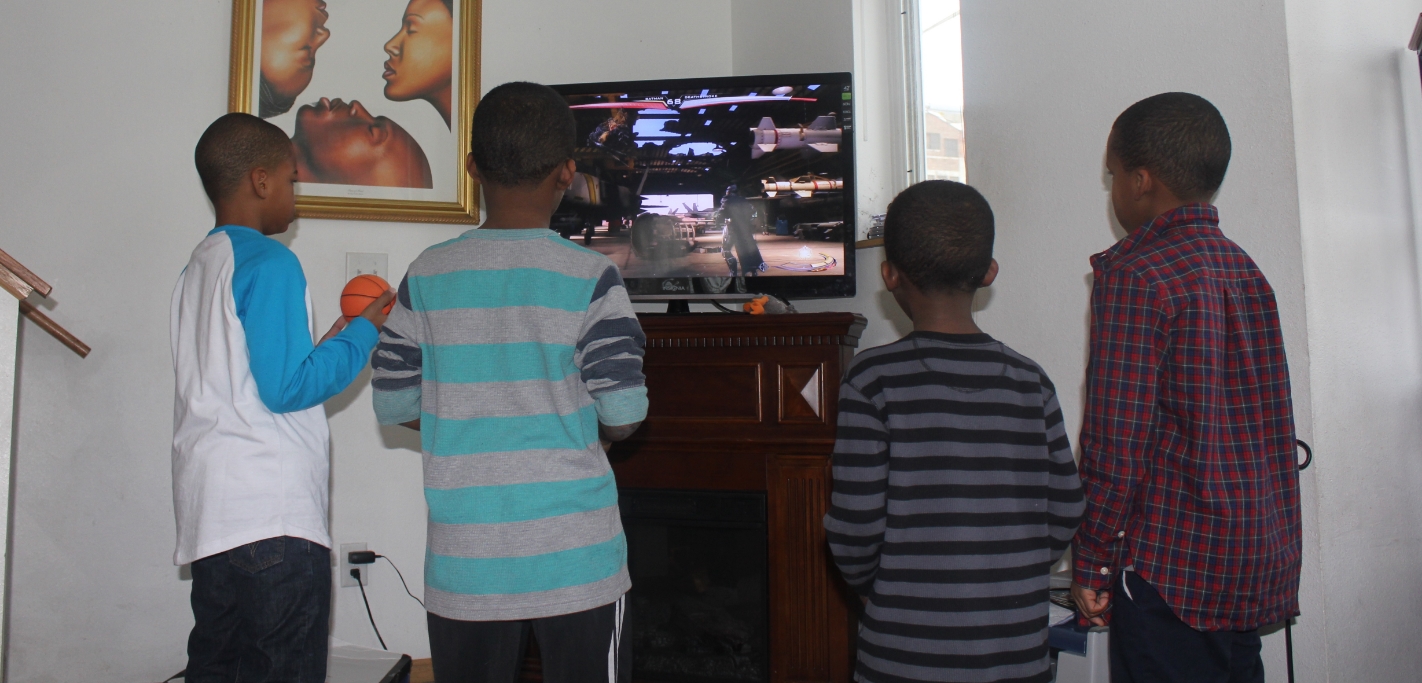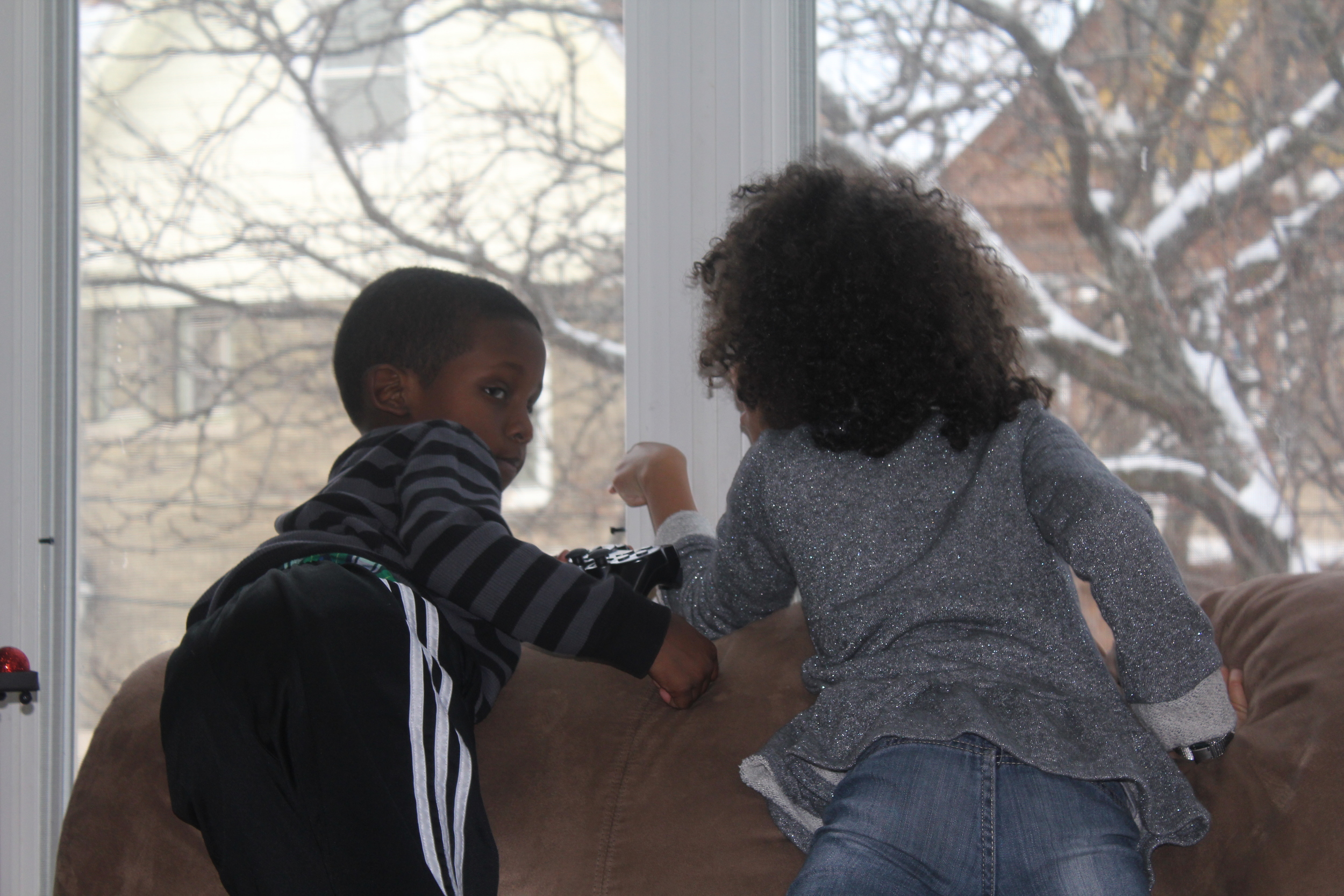The Curious Case Against Poor People’s Parenting
Sin
“When are we going to hold these parents accountable. The teachers are great. It’s what comes to them that is the problem. These parents don’t read to their kids. We need to teach them how to parent.”
-said some self-proclaimed liberal that was not me
My amazing nephews
All I knew was: I was broken. That I had come from a place too wrong; that the good teachers, just like the good pastors, in my neighborhood were going to make me right. The fix: Helping me understand why being a CNA making $10 an hour would be my dream job. That’s what Ms. Jackson told me I should be. That was a “good job” she called it for a Black girl. This was in 1991 not 1931.
I was broken.
I saw the extra clothes given to me at school. I saw the extra boxes of lunch thrown in my backpack. I heard the whispers from adults around me. They thought we were hungry. They thought we needed counseling because of the gun shots at night. They always wanted to give my mother services-after school, Saturday soup kitchens, free basketball programs. I heard the whispers from the adults in the building that we didn’t know who our father was and that our mother was working so many jobs she didn’t know where the school was.
We were poor, yes. But almost none of those statements many of the teachers in my schools made about me and my siblings were true.
The dreams many of our teachers had for us were crushing. Many of them found compromising careers for us because well “…everyone can’t go to college, after all.” Our parents, many of whom, never graduated high school and couldn’t find a university on a map, were accepting of teachers’ professional career advice. My parents, and many in my neighborhood, sent us to school in good faith. My mother never questioned an A. She didn’t know an A in my inner city elementary school was not the same A on the other side of town where the white children played. And yet we rose, she sent me to school always on time. She sent me there fed and clothed. And when there were gun shots outside she turned the Cosby show up louder and we watched from under the bunk beds. And she scrubbed me down until I smelled like Ivory soap. And she read stories to me at night and would pop our hands if we lost focus while reciting multiplication problems. And when she worked nights, my father would make us veal parmesan while reading us stories about Langston Hughes. I wanted to be Langston.
The truth was, we ate pretty well. Sure, we were poor, but during tax time, we were riding high. My mother was and is a hard working, God fearing, union member, who believed that if she just sent her children to school and they worked real hard, they would go far. Very far. Because that’s what we do in America she would say with naiveté.
My mother, and my father for that matter, sent us to school with full faith in the system. That not only what we were learning was preparing us for college but for some amazing career. My parents, to their knowledge were engaged parents. They didn’t think that their neighbors or pseudo-intellectuals, or the people that sat on their pews in church were making judgments about how they parented. They didn’t realize that they were fodder and gossip for teachers during lunch time who made gross stereotypes about how poor people parent. My parents had no idea that they, and parents just like them, were subject to so many debates on parental responsibility.
They didn’t know that there were people, real people, many of whom consider themselves liberal, who believed that if my parents and parents like them just had the sense enough to read to their children, instill values in them, reinforce a culture of learning, then that would change the trajectory of our lives. That somehow if they, as parents, could be held accountable, then the drop out rate for African American children would drastically reduce. My parents would be shocked to know people thought that way about them.
Some people call it respectability politics. I call it bullshit. Condescending bullshit. In fact, there is nothing more conservative and bootstrappy than to blame poor people for having poor people problems like faith in a failed system.
When did this vicious rumor start that poor people don’t read to their kids!?!?!
What’s even more fascinating is this liberal condensation that it’s not about teacher accountability but parental accountability. Because people love binaries. It’s about holding the entire system, which has failed generations of people (including the parents) accountable.
I continue to struggle with this embrace that my newly minted middle class sisters and brothers have with blaming parents. Because they had parents who pulled themselves up by their bootstraps and were deeply invested in their education then somehow people who didn’t “make it” parents must have not? Many of them, light intellectuals, but intelligent nonetheless believe whole hardly that poor people, very specifically, poor Black and Brown people inhabit a culture that prohibits them from valuing educational success. I suppose that’s a daring statement if you take it straight like that. And yet I hear it in insensitive statements, calling into question poor people’s judgment for even having children at all. It is also a common theme that is echoed in the whole “Education starts at home.” They mean poor homes, because they just assume it starts in middle and upper class homes already?
How do you expect to change an education system, a system you find uniquely insurmountable, by denigrating the millions of poor parents who rely on it as their only service for education? I suppose educational excellence and the expectation of high results from a public system is a middle class value that poor and minority people must not know anything about?
That is fundamentally classist and deeply harmful. And I am not torn on that fact. There is the undercurrent of disdain for poor people, especially Black poor people. There is a need to want to fix them. There is this myth that if we fix the way poor Black people parent then we will have fixed the problem of education in America. I would venture to say that there is such hatred, such a need to want to fix as if they are uniquely broken, poor Black parents.
What is liberal about finding disgust with how poor Black people parent? And please explain to me how the decision to chose parental accountability over systemic failure, which should not be a choice, is progressive?
If you are looking for something to be mad at, a place to point your rage, a place to expend your critique of what is wrong with the educational system, you should investigate the policies of bureaucracy and the politics of the status quo. You would find that there are people who are deeply invested in your blame of poor parents. You will find that there are people invested in your desire to want to legislate parenting.






